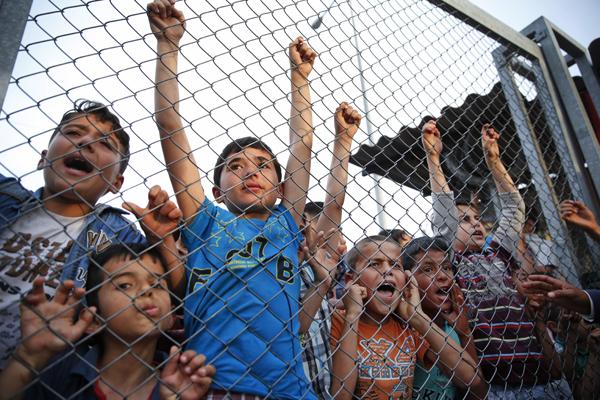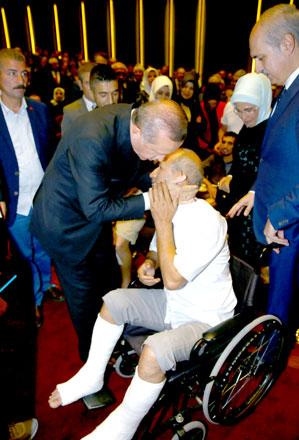You are here
Erdogan needs thicker skin, EU's Tusk says
By Reuters - Apr 24,2016 - Last updated at Apr 24,2016
GAZIANTEP, Turkey/BRUSSELS — Turkey's president needs a thicker skin against criticism, a senior EU official suggested as European leaders try to shore up support at home for their deal with Ankara to hold back migrants.
Former Polish prime minister Donald Tusk, who chairs EU summits, was visiting a refugee camp at Gaziantep near the Syrian border on Saturday with German Chancellor Angela Merkel and was asked about Turkish President Recep Tayyip Erdogan's legal moves against critical media, including a German comedian.
Tusk said press freedom was a "permanent topic" of his talks with Turkish leaders which have produced the deal under which Turkey is taking back all refugees and migrants who reach Greek islands in return for concessions from the European Union.
Recalling his own jailing in the 1980s for opposing Poland's communist government, Tusk recalled that Erdogan, too, had been imprisoned in 1999 for criticising Turkey's then rulers.
"Thirty years ago, I was imprisoned for being critical of the regime," Tusk said late on Saturday. "My good friend, President Erdogan, 15 years later also had a similar experience for expressing his views."
Criticism of Turkey in Europe poses an obstacle to the deal struck by European Union leaders with Ankara last month because approval of the EU's side of the bargain, notably waiving visas for Turkish travellers by June, requires support in the European Parliament.
Many EU lawmakers criticise Erdogan's crackdown on critics, including a lawsuit against a comedian in Germany.
Prosecutors have opened more than 1,800 cases against people for insulting Erdogan since he became president in 2014, the justice minister said last month. Those targeted include journalists, cartoonists and even children.
Tusk said: "As a politician, I have learned and accepted to have a thick skin and I have no expectation that the press will treat me with special care; quite the opposite.”
"And the line between criticism, insult and defamation is very thin and relative. The moment politicians begin to decide which is which can mean the end of the freedom of expression, in Europe, in Turkey, in Africa, in Russia, everywhere."
While focused on the problems in Turkey, Tusk has also criticised Russian President Vladimir Putin as well as his right-wing successors in Poland, whose moves to curb the independence of the public broadcaster have prompted inquiries from the European Union and European rights bodies.
Related Articles
GAZIANTEP, Turkey — Turkey stood its ground over the contentious issue of visa-free travel for its citizens on Saturday, warning German Chan
ANKARA/ISTANBUL — Turkey on Saturday released more than 750 soldiers who had been detained after an abortive coup, state media reported, whi
BRUSSELS — The EU's 28 leaders will host Turkey for an extraordinary summit on Sunday to improve ties and help tackle the unrelenting migran













